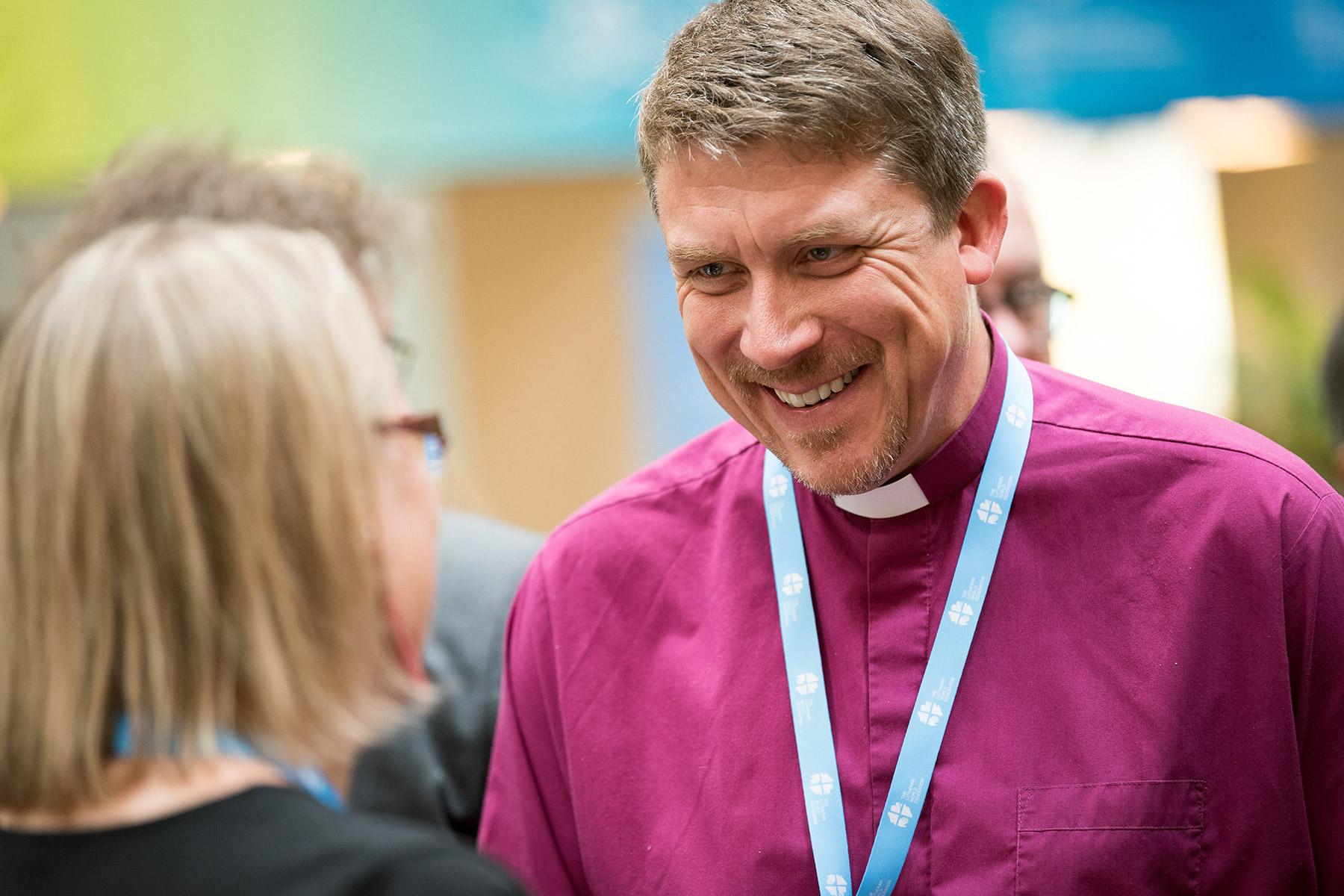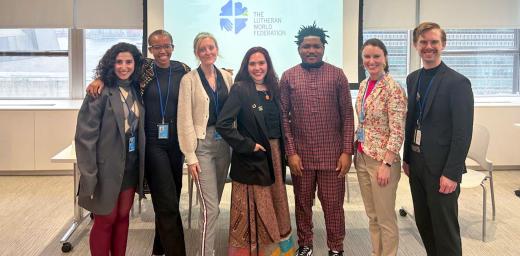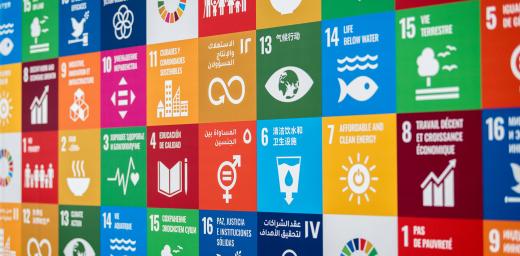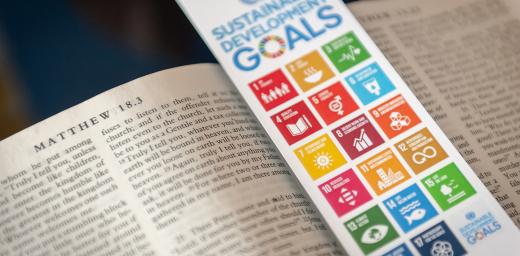“Cooperation is needed today, not isolation”

LWF vice president for Central Eastern Europe Archbishop Urmas Viilma. Photo: LWF/Albin Hillert
LWF greetings to Congress of Leaders of World and Traditional Religions
(LWI) - In a world marked by insecurity and injustice, religious leaders need to jointly contribute to the wellbeing of all, LWF vice president for Central Eastern Europe, Archbishop Urmas Viilma, has told the Sixth Congress of Leaders of World and Traditional Religions.
Archbishop Viilma was greeting the congress on behalf of the LWF. Held every three years in the Kazakhstan capital, Astana, the congress promotes dialogue and respect among religions and cultures. It is held in the presence of Kazakhstan president Nursultan Nazarbayev.
The theme of the congress, Religious Leaders for a Secure World, is a reminder of the responsibility of religious leaders, Archbishop Viilma said.
Development a part of security
The question of security did not just concern the political and military spheres but needed to be seen in a more holistic way. In the 1990s the United Nations Development Program did this by introducing the concept of human security. More recently, goal 16 of the Sustainable Development Goals (SDGs) promotes peaceful and inclusive societies, access to justice for all and effective, accountable and inclusive institutions. He pointed to the LWF’s humanitarian, development and advocacy work and joint work with UN as a sign of its commitment to the SDGs. “Cooperation is needed today, not isolation.”
Religious communities and leaders have an important role to play, especially for people most in need and who are often forgotten. “We need to turn our attention to them. For example: the family that has become homeless because of war and conflict; the young person who has finished school, but is not able to find a job; the woman who is abused by her husband; the child who does not have access to basic health care; the person with disability who is hidden by the family.”
Religious communities contribute to the sustainable development agenda through projects of service and support, and through our teaching and preaching.
He said religious leaders needed to work with their governments to take this commitment seriously and take action. “Indeed, we as religious communities already contribute to this sustainable development agenda through projects of service and support, but also through our teaching and preaching.”
Live peacefully together
However, there had been situations in which religious communities had done harm to people, he said. “There have been moments where religious leaders have not clearly enough withstood fundamentalist and extremist interpretation of sacred texts. At this international and interreligious congress, we are reminded that we need to be fully determined in our engagement for the well-being of all people. We need to stand firm and end religious discourse that promotes hatred and violence.”
Viilma cited Romans 12:16-18 in which Paul encouraged Christians to reach out and connect with other people and live peaceably with them.
One challenge for religious communities was to encourage young people to follow that path of peace. He mentioned the LWF’s Peace Messenger Training Manual, which was designed to help youth from different cultural, ethnic and religious backgrounds learn to respect diversity, take part in dialogue, accept difference and build mutual trust.
Archbishop Viilma said the congress provided a “unique opportunity” for religious leaders to meet and jointly strengthen their commitment for a just and peaceful world. “It is my hope that such conferences will strengthen our commitment locally, nationally and internationally so that faith will continue to be the source of joint engagement for justice and peace.”





